Search
Search Results
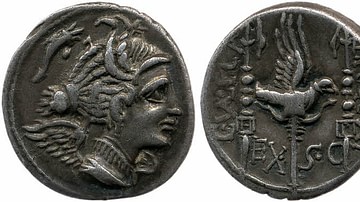
Image
Silver Denarius Depicting Legionary Eagle
Silver denarius depicting Victory on one side and a Roman legionary standard topped with an eagle on the other. Minted in Massalia, 82 BCE.
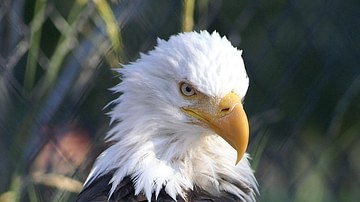
Image
Bald Eagle Plumage
North American Bald Eagle at the Alaska Wildlife Conservation Center. Photo by Nirajha, 2010.
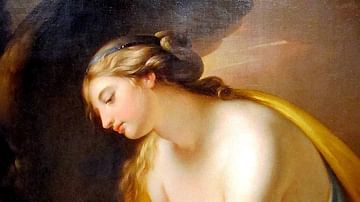
Image
Hebe Giving Drink to the Eagle of Jupiter
Hebe Giving Drink to the Eagle of Jupiter, oil on canvas by Gavin Hamilton, 1767. Height: 127 cm (50 in); width: 94 cm (37 in).
Cantor Arts Center at Stanford University, California.

Image
North American Bald Eagle
North American bald eagle. Photograph taken in Kachemak Bay, Alaska by Andy Morffew, 2016.
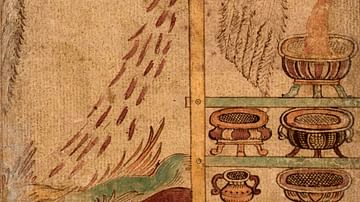
Image
Odin as an Eagle which Creates Mead
An 18th century CE Icelandic manuscript illustration showing the Norse god Odin in the guise of an eagle which produces the drink mead. (Árni Magnússon Institute, Iceland)
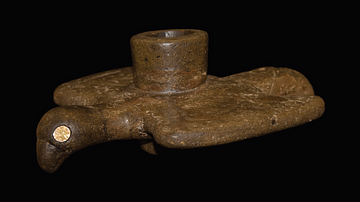
Image
“Flying Eagle” Great Pipe
“Flying Eagle” Great Pipe. Made from solid stone with inlaid abalone shell for
eyes. From the Middle Woodland Hopewell time period, dating in the 200 BCE - 200 CE range. Found in Ross County, Ohio.
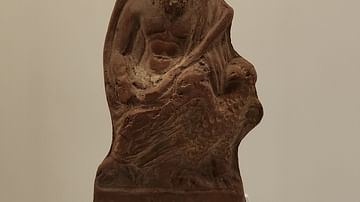
Image
Figurine of Zeus with Eagle
Zeus is seated behind an eagle, one of the god's attributes. This iconographic type is unknown in Greece and draws its inspiration from a motif of oriental origin, of a god mounted on a bird. From Egypt. Mid-2nd century CE. Made from...
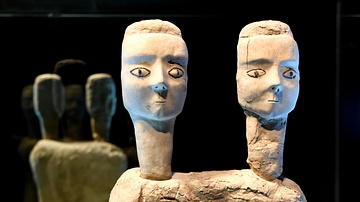
Image
Two-Headed Statue from Ain Ghazal
This two-headed statue (upper torso) was made of lime plaster, reed, and bitumen and was found in modern-day Ain Ghazal city in the outskirt of Amman, Jordan Hashemite Kingdom. Between 1983-1985 CE, 15 statues and 15 busts made of lime plaster...
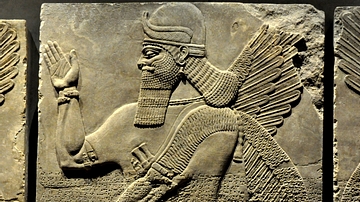
Image
Human-headed and Winged Apkallu from Nimrud
This is an alabaster bas-relief depicting a standing human-headed and winged sage or genie; this is Apkallu, a protective spirit. He wears a horned helmet, elaborate dress, and marvellous accessories. Neo-Assyrian Period, 9th century BCE...

Image
Athena, Hercules, and a Two-headed Cerberus
Athena, Hercules, and a two-headed Cerberus, with a mane down his necks and back. Hermes (not shown in the photograph) stands to the left of Athena. Attic black-figure amphora from Kameiros (Rhodes), c. 510 BCE.
Louvre, Paris.